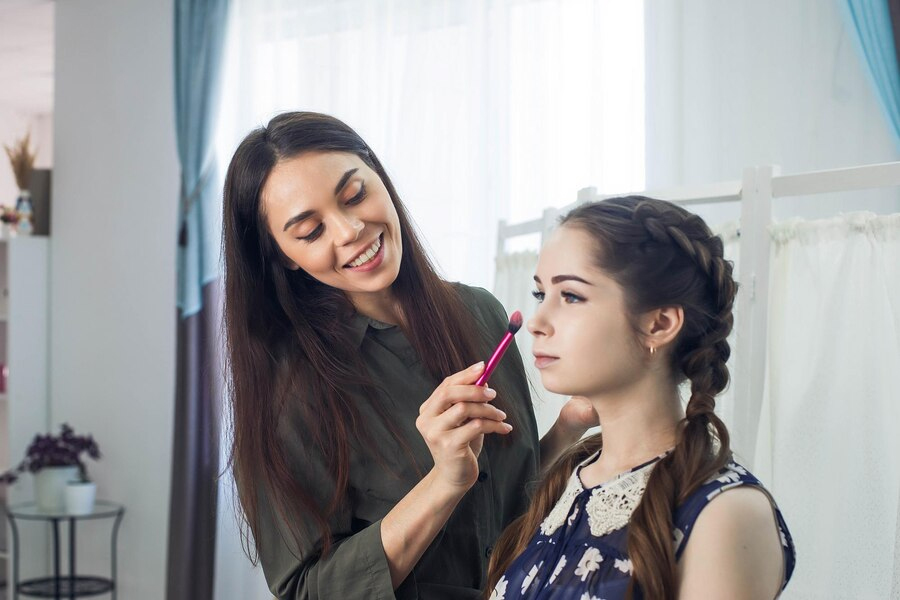-1736847366863.png)
First-borns are known to be trailblazers across households– the first to receive love, the first to experience their parent’s parenting style, with no comparisons whatsoever. First-born daughters or the eldest sisters feel responsible and almost assume the role of a second mother towards their siblings; from reprimanding them to taking care of them when mothers need their well-deserved naps, elder sisters do it all.
Table of Content:-
This tendency is termed as “Eldest Daughter Syndrome” in pop psychology, and is not a medically driven term. However, these tendencies do have a biological basis that has been uncovered by UCLA researchers. A correlation between prenatal stress in mothers and certain markers of early adrenal puberty in first-born daughters was found, which explains the early maturation and motherly tendencies.
RELATED: Lighthouse Parenting: Raising Independent Kids With Confidence and Care
Understanding The Link Between Early Adrenal Puberty And Prenatal Stress

In this UCLA-led research, families were tracked for 15 years and women from prominent obstetric clinics were followed. The women’s emotional states were taken into primary consideration, mainly their levels of anxiety and depression were investigated across the stages of pregnancy.
As these children came of age, their adrenal and gonadal puberty were measured. Additionally, childhood stress too was taken into account, with distressing and drastic changes in life like economic constraints, the divorce of parents or the death of one.
Considering the aforementioned factors and carefully studying each factor at different stages spanning 15 years, it was discovered that the eldest girls matured rather quickly if their mothers had experienced prenatal stress while being pregnant with them. This was solely seen among daughters and not in sons.
How Does Early Adrenal Puberty Contribute To These Tendencies?
This draws focus towards emotional maturity, and cognitive changes as opposed to physical bodily changes solely. For girls, the growth of breasts and the start of menstruation (or, for boys, testicular enlargement) are not considered aspects of adrenal puberty. According to the study, girls naturally distance themselves from their older daughter obligations when they reach a point in their development where they are mentally competent in caring for their younger siblings but not physically capable of bearing their own children.
What Do Elder Daughters Feel When Taking On Responsibilities Early On?

While studies on birth order have corroborated that eldest-born girls are more likely to be in leadership positions, and are most likely to succeed as compared to other sibling types– an elder daughter may also exhibit traits such as having too many responsibilities, being overly dependent on their parents, lacking childhood experiences, parentified behaviour, boundary problems, guilt about not being able to fulfil their obligations, and having trouble setting limits or saying no because they feel this weight of always “proving” themselves. Pangs of jealousy towards a younger sibling too arise at times, seeing her parent’s affection package going towards the younger one.
Moreover, one may see the eldest daughter demonstrating nurturing tendencies towards her friends and partners as well. She carries the weight of an unspoken unconscious and feels like she needs to bottle it all up in an attempt to save her parents from any stress whatsoever. With perfectionism and emotional maturity being her primary tendencies, she may find it difficult to express emotions too.
RELATED: Warning Signs Of Mental Health Issues In Kids That Parents Shouldn’t Ignore And Address Immediately
Conclusion
The concept of “Eldest Daughter Syndrome,” while not medically recognised, sheds light on the unique responsibilities and emotional burdens often carried by first-born daughters. Studies reveal a biological link between prenatal stress in mothers and early adrenal puberty in eldest daughters, which contributes to their nurturing tendencies and early maturation.
Eldest daughters often sacrifice their own childhood as they take on responsibilities for their siblings, understanding these dynamics will help you understand yourself (if you are the eldest daughter) or your loved one, if they are one.
Also watch this video
How we keep this article up to date:
We work with experts and keep a close eye on the latest in health and wellness. Whenever there is a new research or helpful information, we update our articles with accurate and useful advice.
Current Version